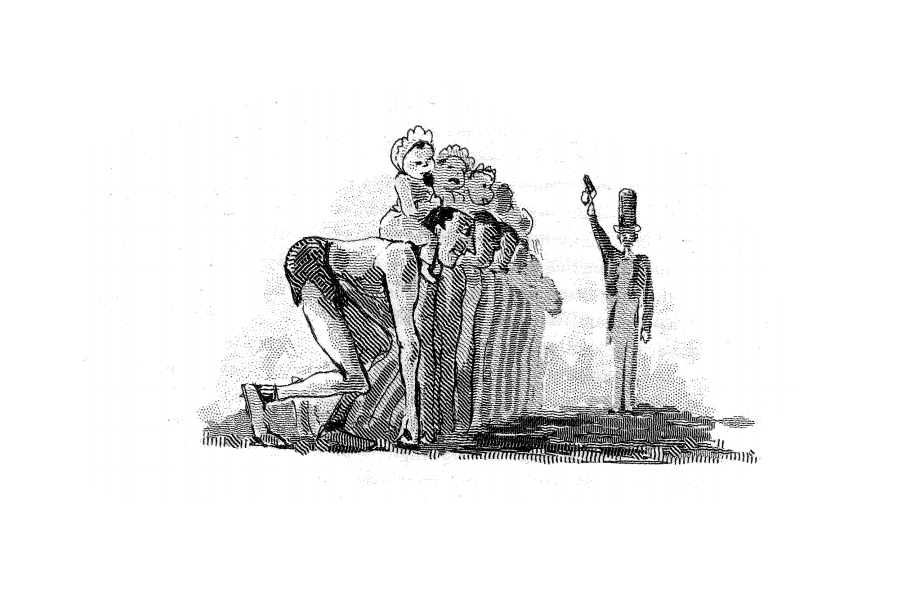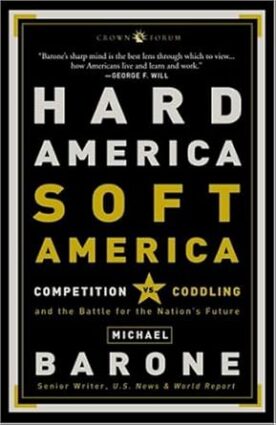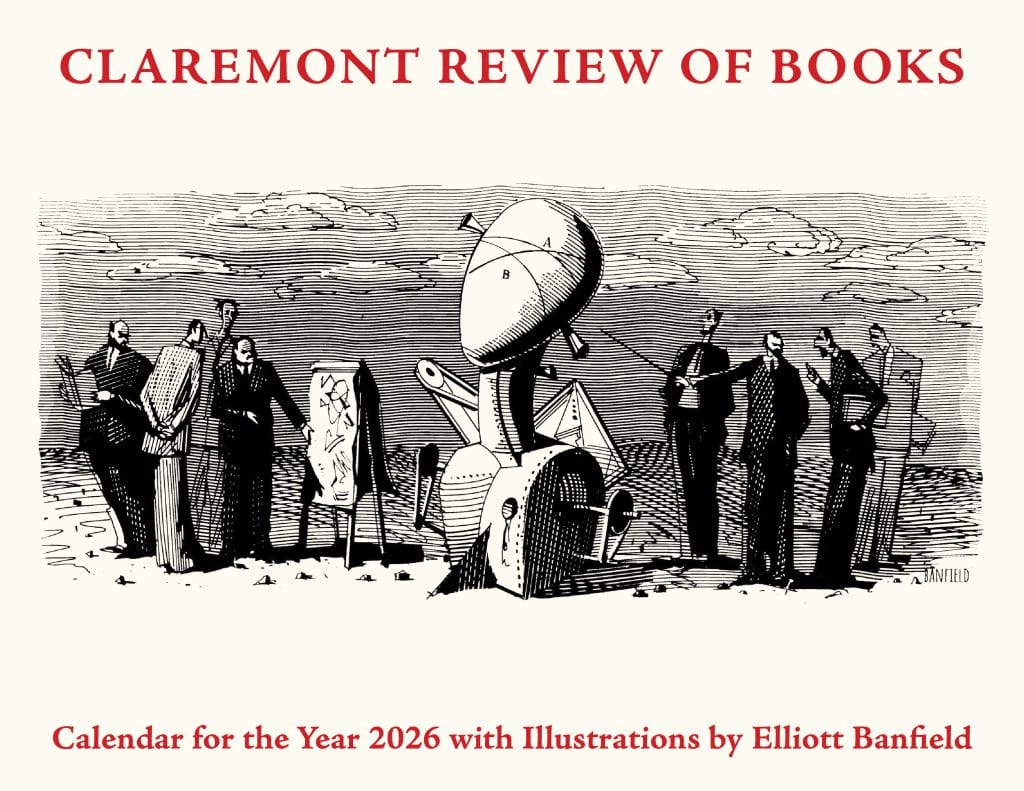Books Reviewed
Michael Barone is our most gifted and knowledgeable political journalist. His Almanac of American Politics has rightly been called “the Bible of American politics,” an indispensable guide to what our states are like and how their identity shapes electoral choices. His book, Our Country: The Shaping of America from Roosevelt to Reagan, is a splendid history of presidential elections from the 1930s to the late 1980s. Its central theme is stated by Barone at the outset: American politics is split more along cultural than along economic lines.
Politics, Barone makes clear, is not about who gets what, when, and how; it is about how we are divided by race, region, and religion and, often, by sex. This was as true during the Great Depression as it is today. To Barone, a master of demographic details, people matter. Tolstoy was wrong when he said at the end of War and Peace that individuals do not count, only great forces do. It is inconceivable that our history has not been profoundly affected by Franklin D. Roosevelt, Martin Luther King, Jr., and Ronald Reagan.
Culture may be important, but how? And how does it make America what it has become? Every nation has cultural struggles, as is evident by the fight between the Irish and the English in Great Britain or between Muslims and Jews in the Middle East. But those conflicts, though bitterly divisive, do not make England or Israel like America. We know that we once had a House Committee on Un-American Activities, but one would be astonished to find a British Committee on Un-English Activities or an Israeli Committee on Un-Jewish Activities.
America has not only a constitutional system that makes it different from many other countries but also a doctrine. As Seymour Martin Lipset once put it, in most other countries you belong to a territory; here you belong to an idea. But that idea neither unites us nor makes our schools competitive nor our government skillful. Whatever the idea is, it leaves us divided about almost everything except that it is nice to be free.
The idea about which Lipset wrote is evident in the way Americans speak of their own country. We celebrate freedom even when we are led to do things that make some people less free. That we are inconsistent is no surprise; we are, after all, human beings. But when our greatest leaders want us to do better, they appeal to the ideal of freedom. Martin Luther King, Jr., did this during the civil rights revolution, Franklin D. Roosevelt did it when he urged the nation to join with England rather than Germany in 1940, and Ronald Reagan did it when he infused the nation with his optimistic belief in the future of freedom at a time when many of us were supposedly caught up in a malaise of national doubt.
But what does freedom mean in practice? The country has become less free in some ways (one thinks of campus speech codes, a distorted theory of affirmative action, and a sometimes witless commitment to regulations), but it has become more free in other ways (nude dancing is now “free speech” and abortion is now regarded as a right).
In Hard America, Soft America, Barone tries to explain the kind of balance we have struck about freedom by describing where we have become Hard and where we have become Soft. To do this he sets before us an obvious puzzle: This nation seems to have incompetent 18-year-olds but remarkably energetic 30-year-olds. By contrast, many European nations have competent teenagers but lazy adults. The answer, he believes, can be found in the difference between a Hard culture and a Soft one.
By a Hard culture he means one that tests people rigorously by the enforcement of strict standards; by a Soft one he means one that does not test but tolerates. A Hard culture makes people toe the line; a Soft one coddles them. In this country, young people face a Soft culture of undemanding schools, silly television shows, and vapid popular music. But when they enter the real world, they face a Hard culture of business firms that are driven by markets, elite colleges that (mostly) want the best students, and a military service that is committed to serious training and real-world tests.
By contrast, Europe exposes its youngsters to a very Hard culture of intensely competitive high schools, with access to college reserved for the very few that do well on tough exams. But when they become adults, they face a Soft culture of uncompetitive firms, long holidays mandated by law, and extraordinarily generous welfare and unemployment benefits.
* * *
The United States once had a culture that was relentlessly Hard. My father dropped out of school when he was in the eighth grade, behavior that was commonplace in his time. Until I came along, nobody in my family ever went to college. Doing so in my father’s day would have been ridiculously expensive and, besides, very few elite colleges would have admitted somebody who had not only gone to (gasp!) a public school but who had not bothered to graduate from one. My father worked very hard because the only alternative to work was starvation or (possibly) an ungenerous local dole.
Happily, that world has changed. The government adopted modest unemployment benefits and Social Security, and the G.I. Bill made college available to millions of Americans who otherwise would never have had a chance. (In the old, very Hard America, the presidents of the best universities opposed the G.I. Bill.) In 1935 it created a federally funded welfare system that, initially, helped mostly women who had been widowed. The Fair Labor Standards Act abolished child labor and created a modest minimum wage.
But the move to a Softer culture did not stop there. In a few years, welfare payments expanded to cover never-married mothers as well as widowed ones and the minimum wage crept up despite the near-universal view of economists that this would increase unemployment among young and poor workers. In 1971, President Nixon abolished the gold standard and created wage and price controls. Inflation increased. We created easy money, and easy money is Soft money because borrowers pay back loans in currency that has become cheaper.
In these ways America was trying to become like Europe: make life easy for adults. But then, as Barone observes, some remarkable things happened. Wage and price controls ended. Presidents Carter and Reagan began to deregulate the transportation and financial industries. Foreign competition challenged the ingrown world of Big Business by selling better and cheaper cars, computers, and television sets over here. American Big Business, those firms that John Kenneth Galbraith once thought amounted to a self-sufficient planned economy protected from committing the worst abuses only by the countervailing power of Big Labor and Big Government, began to feel real competition, not only from abroad but from American entrepreneurs such as Bill Gates and Sam Walton.
And our welfare system was drastically changed in ways that sharply reduced the size of the welfare rolls, made getting jobs more attractive than receiving a dole, and limited to five years the time a woman could receive any benefits. The changes were pioneered in a few states that often take advantage of options for change, but when the federal law was passed in 1996, what had happened in such places as Wisconsin now happened almost everywhere.
There is a remarkable lesson here: government helped make our culture Harder. Nothing quite like this happened in Europe. And here it was a bipartisan effort. A Democratic president, Jimmy Carter, began business deregulation that was amplified by Republican Ronald Reagan, and a Democratic president, Bill Clinton, signed a welfare reform bill that was pushed through Congress by its Republican majority. The effort was bipartisan not because the leaders of these parties are great statesmen (Clinton, after all, vetoed two welfare reform bills before he finally signed one), but because this is what the people wanted.
The same thing happened with respect to crime. Crime rates rose dramatically in the 1960s and 1970s, but by the early 1980s they were coming down, and now many American cities have lower crime rates than do many European ones. In my view, we pushed crime rates down because ordinary citizens do not like having their homes burgled or their spouses assaulted, and here those citizens elect prosecutors and, in many states, judges, as well as state legislators. In Europe ordinary citizens do not like crime either, but they cannot elect prosecutors or judges. Here, people make the crucial decisions; in Europe, bureaucratic elites make them. Unelected elites tend, in my view, to be Soft. They are part of Philip Rieff’s “Therapeutic State” that wants to tackle all problems by finding and solving their root causes.
Barone points out how the military became Harder. When we had a draft, shot through with exemptions for college students, we had a badly educated military with which to pursue our foreign policy and a horde of college students who protested against that foreign policy. With an all-volunteer force recruited by linking military service to technical training and to the prospect of government support for college education, we got exceptional people into the military where they were trained to new standards adopted by officers who realized how badly we had done in Vietnam.
* * *
Demands for a softer America continue. The National Education Association lobbies for higher salaries and more job security and against merit pay and higher student standards. Faced with the need to renew the welfare reform act, many members of Congress want to get rid of its Hard provisions.
But so far Hardness has endured. Parents who want a good education for their children have opted for home schooling and a search for charter schools and voucher programs. Reversing welfare reform would, I suspect, be immensely unpopular in the country.
Barone links his work with that of David Brooks who, in his book Bobos in Paradise, points out that bourgeois bohemians value status and money but know that nothing is guaranteed. They have to pass an endless series of aptitude tests. That is the very opposite of what occurs in a traditional aristocracy, where the only aptitude test you have to pass involves selecting the right grandparents.







